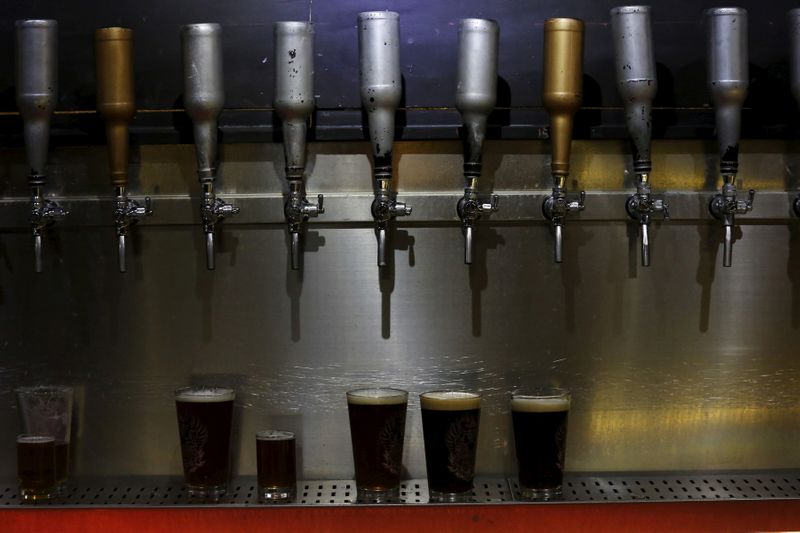This post was originally published on this site
https://i-invdn-com.akamaized.net/trkd-images/LYNXMPEG5A17M_L.jpg
BUENOS AIRES (Reuters) – Argentina is jockeying to get more of its malt barley into Chinese beer, now that Asia’s mega-economy is locked in a trade fight with its top barley supplier Australia, according to industry sources in the South American grains powerhouse.
China is the top global importer of malt barley for making pale lagers and other beers, while Saudi Arabia is the top importer of feed barley, which it uses as camel food.
Argentina is expected to export 120,000 tonnes of barley to China this year, said Agustin Baque, foreign trade chief and farm consultant for export firm Alea y Cia S.A.
“For the next season, if the Chinese maintain import taxes on Australian barley, I think it could double to 240,000 tonnes, maybe more if barley farms in France and Canada have bad crop weather,” Baque said. Alea y Cia is based in the Atlantic port city of Necochea and specializes in malt barley.
Argentina’s CIARA-CEC export chamber said it was working with the trading companies it represents and the government “to satisfy current and future Chinese demand for high quality barley.”
Earlier this year, citing allegations of dumping, China slapped an 80% tariff on barley from Australia, amid increasing tensions between the two countries.
Most of Australian barley exports went to China before the trade spat. Australia is expecting a 2020/21 barley crop of 9.5 million tonnes and consumes about 3.5 million tonnes domestically, leaving plenty to be exported.
Baque is concerned Australia might look to sell some of that to other South American countries.
“Argentina is the biggest exporter of malt barley to the South American market but Australia is very competitive for the next season. So if we don’t negotiate with Chinese buyers we could have a supply and demand problem,” Baque said.
“For us the Chinese market is new. But our main client is Anheuser-Busch InBev (BR:ABI), which is the biggest player in the Chinese beer market. We are talking with them about exporting to China.”
BARS CLOSED
The China-Australia trade dispute is not translating into a big increase in barley sowing this season in Argentina, however. With many bars closed around the world due to the coronavirus pandemic, global beer demand is down.
So, with 2020/21 sowing just starting and wheat prices at relatively attractive levels, Argentine farmers are expected to lean toward wheat rather than barley. Argentine wheat and barley are planted in May-June and harvested November-January.
Argentine barley output in the 2020/21 season is estimated at 3.75 million tonnes versus 3.5 million tonnes in the previous crop year, according to the Buenos Aires Grains Exchange.
One Buenos Aires-based grains industry source, who asked not to be named, said some Australian barley exporters were willing to pay a premium to sell Argentine barley to China and keep their customers.
“Australian barley exporters are contacting Argentine ones, because Argentina has a long list of processing plants and companies authorized to export barley to China,” said the source.
“They are trying to introduce a channel to allow Australian exporters to sell Argentine barley to China in order to not lose that market.”
In calendar year 2019, Argentina exported 1.3 million tonnes of beer barley, of which around 585,000 tonnes went to top buyer Brazil, according to official trade data.
Barley harvesting in the United States, Canada and Europe is around August. To help hold the market until then, Argentina has barley stocks of about 900,000 tonnes, 70% of which is feed barley and 30% malt, according to Baque’s estimates.

